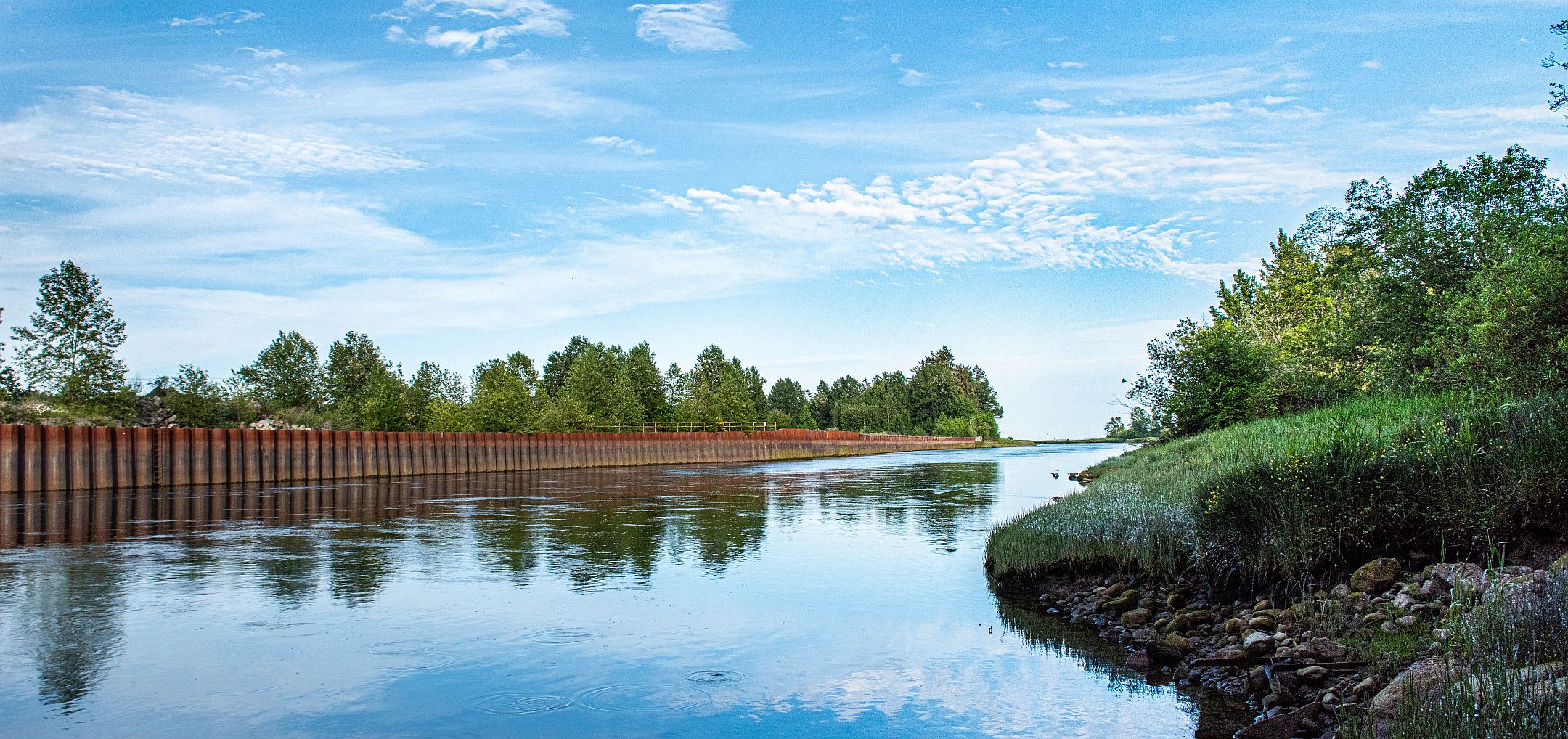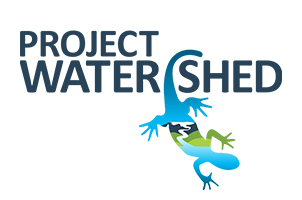UNPAVING PARADISE AT KUS-KUS-SUM
Suggested Grades: All
Teachers notes: This game has not been piloted in a classroom. If you do use it in your classroom please give us feedback on what you did, how it worked, and what would make it better by emailing maps.projectwatershed@gmail.com
Object
- To rebuild Kus-kus-sum to be the most productive it can be.

Materials
- Map of Kus-kus-sum – this could be a printed map or you could draw one on a whiteboard
- Kus-kus-sum Diagrams – they can be printed and pieced together or used to draw your own
- Coloring sheets – or students can draw their own plants and animals
Game Play
You can either organise students into teams or the whole class could be one team. Each team gets a map of Kus-kus-sum. The map(s) should be visible. The team(s) of students are going to try to create the most productive habitat at Kus-kus-sum by adding creatures, salt marsh plants and eelgrass to the estuary space through “earning” items as per the chart below. You must earn at least one tree or shrub and one salt marsh plant before you can earn any of the other items. The teacher can determine the method for “earning” items – could get them for answering questions, good behaviour etc…Once someone earns an item that person gets to color and/or place that item on the map. Facts about the item can be with the class by the student or teacher (see the fact sheets for a list of facts or students/teachers can come up with there own facts). You can trade a mix of estuary elements at anytime for other elements of equal point value. E.g. If you have 2 fish and 2 frogs you can trade them for an eelgrass or visa versa. At the end of the game the table with the most productive estuary wins. The most productive estuary is determined by adding up the points of all the elements on the table plus any extra points your estuary has received.
Extra points are given for the following:
Diversity (having at least one of each element) = 100 points
Most Abundant Invertebrate Community = 20 points
Most Abundant Amphibian Community = 30 points
Most Abundant Avian Community =40 points
Most Abundant Fish Community = 50 points
Invertebrates:
Worms,
shellfish
2 Points
Amphibians:
Frogs,
newts
3 Points
Birds:
Heron,
Brant Goose
10 Points
Fish:
Salmon,
Sand lance
15 Points
Salt Marsh:
Silverweed,
Cattails
100 Points
Trees & Shrubs:
Salmonberry,
Cedar
150 Points
Community Connection
Contact Project Watershed or the Aboriginal Education Department to demonstrate this activity at your class or on a field trip.

